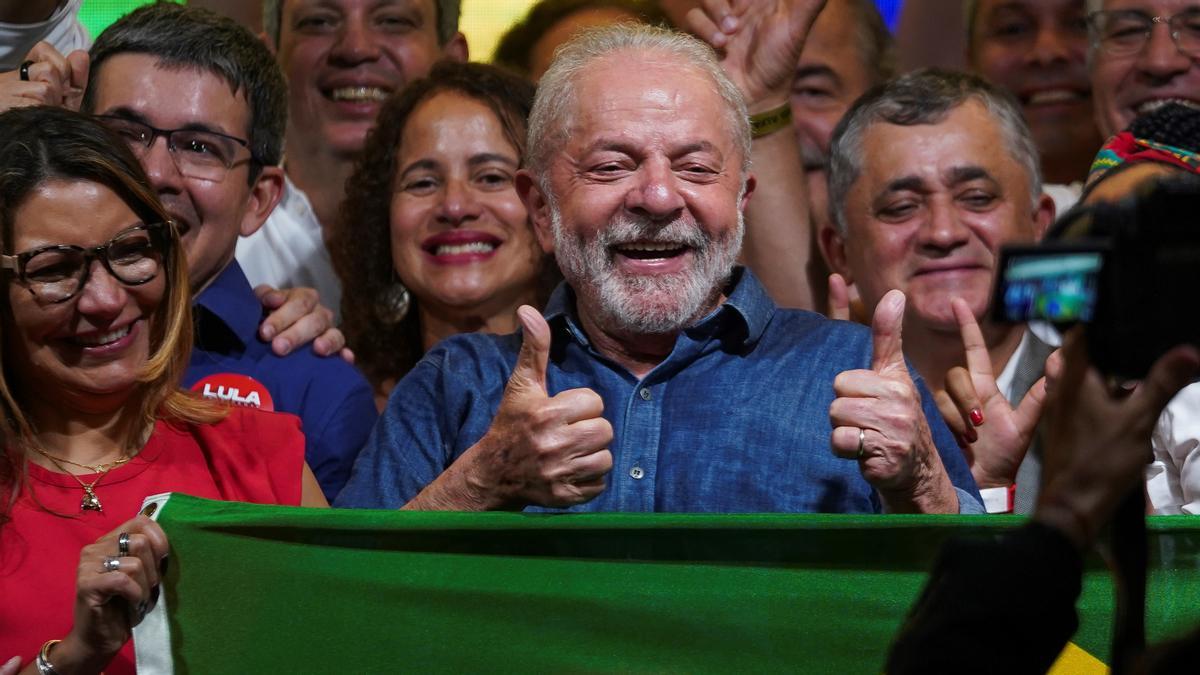With the victory of Luiz Inácio Lula da Silva in the elections this Sunday in Brazil, the Latin American left manages to retake control of the main bastion and economy of the continent in a year in which, for the first time in its history, Colombia has a government progressive.
Lula’s victory has a fundamental geopolitical repercussion for the continent since it not only implies a heavy defeat for the extreme right embodied by Jair Bolsonaro, but also the consolidation of the left in a region that in the last year has seen how progressive candidates have tax in Chile, Honduras, Peru and Colombia.
The campaigns of the right to smear and stigmatize the bets of the left have been of no use, which is constantly accused of pretending in their countries a Venezuelan drift. Instead, it has been the mismanagement of the pandemic and its economic consequences that would have prevailed among the electorate when opting for Lula in Brazil, or Gustavo Petro in Colombia.
After the region has swung to the right in recent years, in 2018 Mexico was the first to reverse this situation with the election of Andrés Manuel López Obrador, who is entering his final stretch as president. It was followed by the Argentina of Alberto Fernández and the Bolivia of Luis Arce, after the political crisis of 2019 with which the right had a brief stint in power.
The return of the left brought with it historical events such as the election of Xiomara Castro in Honduras, thus becoming the first woman to govern the small Central American country, that of Gustavo Petro, in Colombia, the first president of this ideology that he will lead from Casa Nariño, or that of the peasant son Pedro Castillo in Peru.
That of the Peruvian is the most convulsive mandate at the moment of this new wave of the Latin American left. The suspicions and accusations of corruption, as well as the almost constant departure of members of his cabinet, surround a Castillo cornered by a hostile Congress that from the first moment has sought to remove him from office.
In Colombia, for its part, the aspirations to overcome the entrenched internal conflict aggravated during the previous government of Iván Duque led Gustavo Petro to victory in the elections, while, in Chile, Gabriel Boric became the most senior head of state young to be elected.
Unlike now, the previous ascension of the left in the continent back in the first decade of the new millennium was due to the boom in raw materials, whose benefits covered the social policies that in Lula’s first Brazil, for example, managed to extract 30 million people out of poverty.
However, that middle class that emerged from those social measures is increasingly in decline after years of neoliberal policies fueled now by the consequences of the coronavirus pandemic, the pronounced inflation caused by the war in Ukraine, or the migration crises.
In Ecuador, one of the few countries in the region led from the right, the strong and sometimes violent protests over the increase in the prices of fuel, food and basic necessities in the middle of the year have posed a significant challenge for William Lasso. Paraguay and Uruguay, as well as El Salvador in Central America –with four other countries at the center of the political spectrum–, are the rest of the countries with conservative governments.
Protests like the ones that have been experienced in Argentina almost since Fernández was elected; in Chile, where Boric, as previous governments have done, has to continue facing strong protests over the Mapuche issue that come from the south of the country; or in Cuba and Nicaragua, where the opposition demands the departure of their respective governments and greater doses of democracy and freedom.
The weight of Lula’s victory is incontestable because with Brazil the left will govern 86 percent of the population of Latin America and the Caribbean and places the country once again in an international political relevance that Bolsonaro had stripped it of with some of his decisions, such as its mismanagement of the pandemic or its belligerence with the environmental issue.











